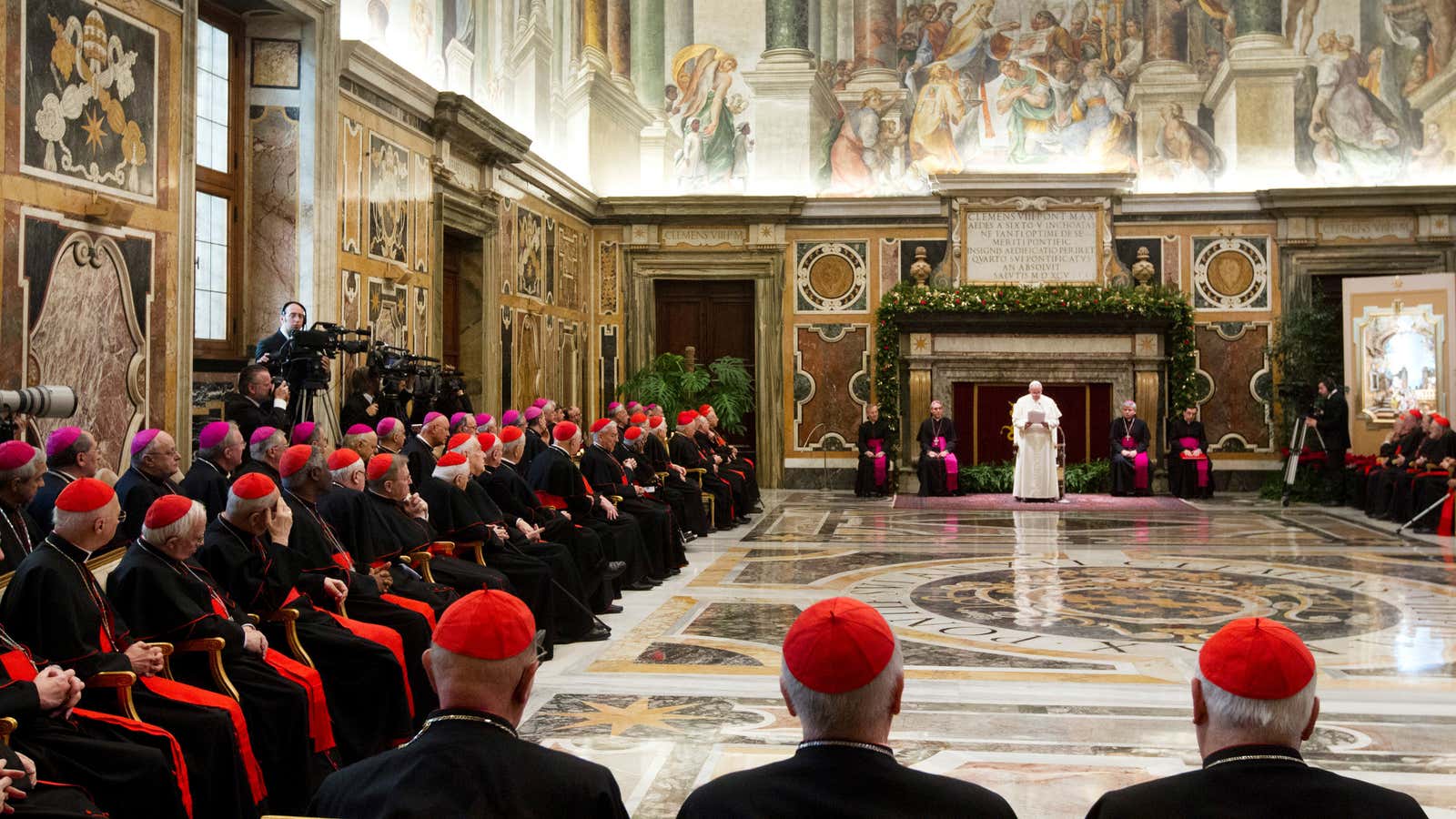“In an effort to streamline and modernise its communications structures and bring its accounting practices in line with international standards, the Vatican hired … [t]he global management-consulting firm McKinsey & Company and the Netherlands-based financial and administrative consultation firm KPMG.” Catholic Herald, Dec. 20, 2013
His Holiness, Pope Francis I
Apostolic Palace
00120 Vatican City
January 15, 2014
Your Holiness,
Thank you for selecting McKinsey & Company for your strategic review. While our deep dive into the Catholic Church’s strategy is proceeding apace, here are a few early action items that may be worth your further attention:
Item: Acquisition. Might the church find synergies with the Santa Claus enterprise? Claus already seems to be leveraging your brand equity to publicize his just-in-time gift delivery model, although we are still confused about the prospects of monetization. Amazing supply-chain (though we note with concern the potential impact of recent labor legislation on elf wage costs), and a top candidate for potential M&A activity. Win-win acqui-hire?
Item: Messaging. Your adoption of Twitter and emphasis on the compassionate side of the church is a good example of successful thought leadership. But the church’s message can get lost with so many different spokespeople. Adopting an authoritative text as a guide to the church’s shared values seems necessary. Perhaps a council is in order?
Item: Talent deployment. We’ve noticed an arbitrary separation between the church’s male and female workforce that could lead to inefficiencies and personnel shortages. We recommend reconsidering gender-separated training programs and work assignments, particularly at senior management levels—you don’t want public-relations problem like the one Twitter faced.
Item: Brand identity. There is a great deal of variability in architecture, design, staff uniforms, and customer-service procedures at different church facilities worldwide. This can be off-putting to customers, who feel reassured by a consistent experience. McDonalds and others have shown that it’s entirely possible to achieve a high level of brand consistency within a franchise model. We can help with this.
Item: God’s work. The Vatican Bank has had a very good year, but the money laundering has to go—perhaps to one of these jurisdictions. If that causes a liquidity crunch, we have some outside-the-box ideas for revenue-raisers. Bitcoin has shown how blind faith can exploit gaps between market and intrinsic value, an area in which we note the church already has considerable experience thanks to its relics business. So we are considering possible alternative-currency plays: IndulgeCoins?
Item: Founding story. A strong founding narrative is of increasing importance. We have concerns that the story around Christ’s birth is muddled (parentage?) and doesn’t reflect logistics best practices (lack of hotel reservation forces birth into agricultural facility). Many of the key features of his life story (asceticism, celibacy, etc.) feel out of touch with the aspirations of Millennials today. An update could increase the church’s attractiveness to this demographic— recasting Christ as a disruptive entrepreneur could be a game-changing opportunity. Initial thought: Christianity as the first social network?
Looking forward to strategizing further with you on this.
Sincerely, your humble servant,
John Wycliffe
for McKinsey & Company
